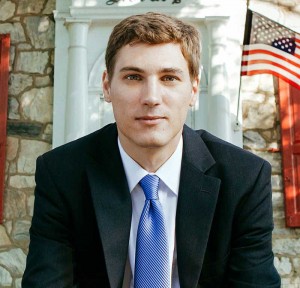By Josh Maxwell, Mayor of Downingtown
Cultivating economic development is often a tricky endeavor. On one hand, we want to incentivize job-creating businesses; on the other hand, we want to avoid missing out on valuable tax revenue for our communities. In Downingtown we have been recognized for being able to use infill development opportunities with limited tax incentives to expand our tax base in a responsible, community-beneficial way. I believe can do the same thing in Coatesville, but on a larger scale.
The key to economic development is to first understand the culture and needs of the community. Developmental progress must align with the local vision for the area and take into account the intrinsic culture of the community in order to be commercially beneficial. In Downingtown, we have focused on turning industrial sites, old fire halls, and vacant pads into viable commercial and residential tax-paying entities, ultimately lessening the tax burden on our homeowners while extenuating the culture of the Downingtown community.
I have gotten to know a lot of folks in Coatesville, and I have noticed two things that I think make Coatesville primed for larger-scale development. The first is the welcoming spirit the community has towards development. Most folks I have talked to have a strong desire to see construction jobs, residential development, and an expanded commercial tax base in their community. Not every community shares the same desire; I believe it is a strong selling point to potential developers.
The other thing I have noticed is that so much of Coatesville, while dense, has plenty of developable space. Downtown Coatesville has the rare opportunity in an urban setting to have large-scale development. This is a major plus, because it allows developers to create the critical mass to support other portions of their project. For example, a single restaurant pad might otherwise not be appealing but for an adjacent multi-family residential pad that could fit 75 apartment units. The complementary uses make the project more likely that a developer will see the site as a viable investment opportunity.
Before getting started, it is critical to understand the economic situation that the City of Coatesville is in. Coatesville has an average property assessment of $60,000 per unit. As a comparison, $60,000 is half of the average assessment of Downingtown and West Chester ($120,000). An average assessment of $60,000 makes it very difficult to properly fund a municipal government and a school district. The number one priority for any development should be to increase the average taxable assessment in the City. Gentrification can often become an issue, but given Coatesville’s numerous infill opportunities, I believe incentives should be used to steer developers to the areas of the City that can best bring in new housing and commercial properties.
The next logical question is, what types of incentives make sense? This will be a hot topic, and has been for a long time in Coatesville. I have strong feelings on this. More than anything, Coatesville needs tax revenue flowing to the local government. This in turn means more police officers and better services, as well as long-term funding sources for the school district. In order to do this, incentives must be designed so that developers still pay some or all of their City and School District taxes. That means that any incentive would need to come more from financing and state-tax abatements. Any development that is packaged with a local tax break from the City or school district will, in the short term, increase the tax burden on the already overtaxed residents of the City.
We used a similarly designed tax break in Downingtown on the Stella Rossa pad next to the Brandywine River. As a community, we wanted to preserve the architectural integrity of the old mill building while also not giving up too much in revenue. We found a developer willing to put a restaurant there, at the time called Fire Creek; he received a state tax break and will pay taxes on the original assessment of the building up until 2018. Ultimately, Downingtown didn’t lose any tax revenue. We turned a rubble-filled mill site into a popular restaurant, and our community received the revenue and commercial benefit to having 50 more employees in the Borough. It was an economic win-win.
I believe it is critical that Coatesville applies the same logic, while understanding that the economic circumstances are different. As a community, if we can get behind projects that carry the same win-win characteristics, the appearance of downtown Coatesville will appropriately represent the proud culture in the hearts of so many of the City’s residents.
Josh Maxwell is the Mayor of Downingtown and a Democratic candidate for State House in the 74th District.







